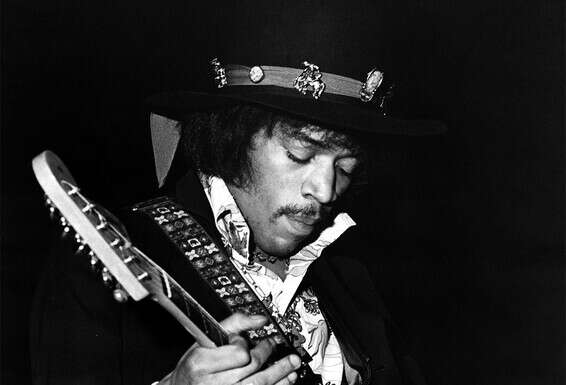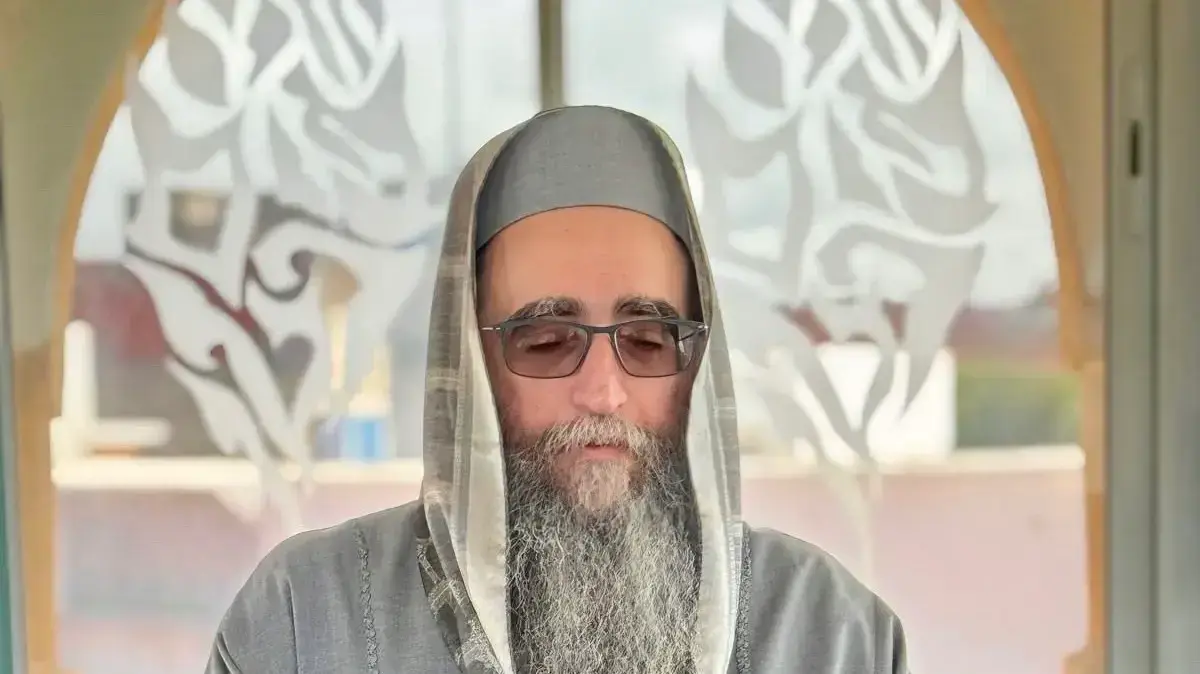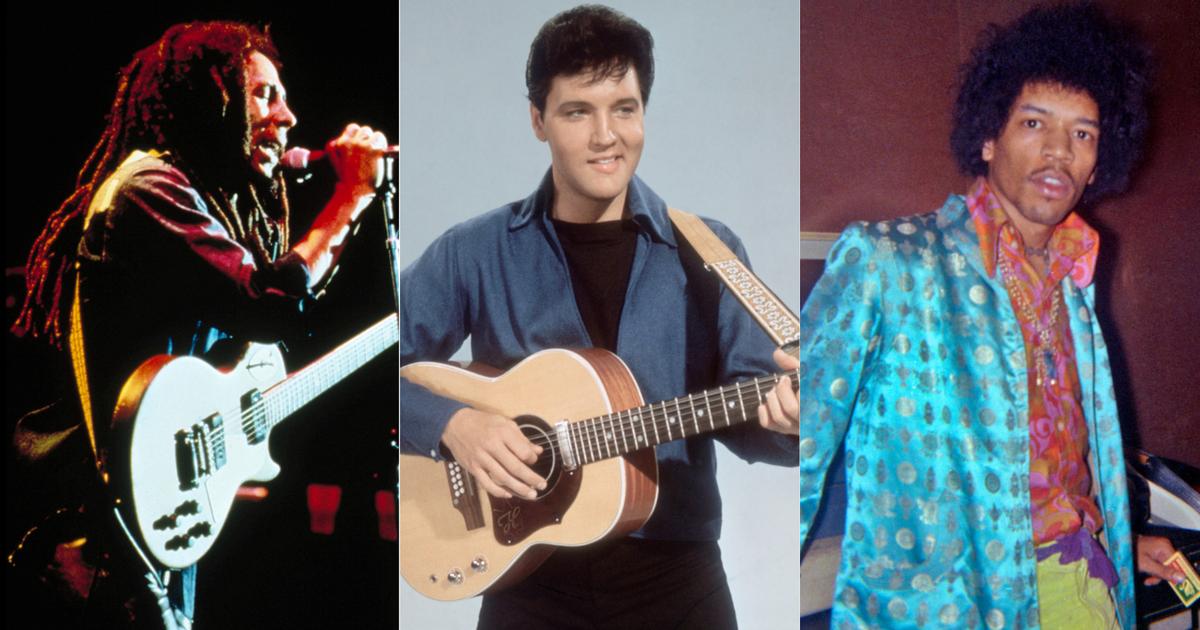The story of Mark Tubley, Jackie Bitton and Joe Lev from the band "Variations" is almost as amazing as their revolutionary music, which in the sixties and seventies combined between rock and Moroccan influence • And in Israel?
Have not heard of them
Right: Joe Lev, Jackie Bitton, Mark Tubley and Jack Grand, 1969
Photography:
PR
In the 1960s, the "rhythm bands" from Ramla and beyond in the Israeli periphery were composed for the most part of immigrants from the Islamic countries in Israel.
These were musicians who were looking for the gateway through which they could integrate into Israeli society and culture, equipped with an electric guitar and with the hope of being accepted as equals - among more equals.
As I researched the period, I wondered what kind of musical world would have been created in Israel if an oriental rhythm band had been embraced by the establishment.
For the most part the "what if" game ended in dead-end arguments.
But when you look at the names of the Jewish Nobel laureates - in academia and the cultural industry overseas - Oriental names flicker.
So, with a little intuition and a lot of Google, I started looking for a rock band from the Maghreb, which operated in a universe parallel to Israel.
•••
"So that's how you found us?"
Ask the members of the "Variations" band.
"Yes," I reply, "I imagined you and thought you must exist."
"And it's similar to what you imagined?"
"No, you are much better."
Jimmy Hendrix // Photo: Redferns
Until the Air band wound up in the 1990s, the most well-known and successful French band outside of France was "Les Variations" '- the variations.
They started playing together when they were 19-17, in the late sixties, like another French rhythm band you don't know.
But pay attention to the names of the band members: Mark Tubley, Jackie Bitton, Joe Lev, Maurice Maimon and Robert Fitoussi.
The band, which continued to operate throughout the 1970s, combined jazz, rock and Moroccan influences, progressive rock that would be considered revolutionary in the test of time.
And in Israel?
Have not heard of them.
"I was born in Fez, Morocco to a traditional family," Tubali tells me.
"I was obsessed with motorcycles - building, assembling. At the age of 13, until I had an accident and was in bed for a few months. My brother brought me a guitar from Europe, my two friends, George and Costa, were the grandchildren of Zohra Alfasia, you know who it is?"
Obviously, Erez Bitton wrote a song about her, studying it at school.
"So they taught me chords, and from there I taught myself from the music I heard on the radio. We heard Arabic and Andalusian music, occasionally also songs in French. Near my town there was an American base and they would broadcast Ray Charles and little Richard, Totti Proti, Ovambamplova, Everything in real time. "
And in June 1966, when you were 16, you flew to visit your brother in London.
Tubley: "And it was an explosion! The Beatles released 'Revolver', I was shocked, I played all day in Piccadilly Circus with the hippies, at nights I saw 'The Kinks'. I was there for three months and learned everything I could about rock 'n' roll. 'They're going to appear in Casablanca's big square, I went to see them, and before them a band called' The Jets' was playing. Two years later I was looking for a drummer in Paris, I put an ad in a musical instrument store, and one day a drummer says he played with the Jets in Casablanca. "Key Bitton."
Keys lead singer, Gene Simmons // Photo: Reuters
Bitton: "As a kid in Casablanca I used to drum on my mom's pots, and Dad would sing piyyutim at home, in the shop, in the synagogue, and in my ear I had all the Andalusian music and the 'goddess' style from weddings and parties. Chuck Berry, Elvis, 'Long Tall Sally' and I went crazy with the beat. My father, peace be upon him, was religious, and sent me and my brother to a Jewish summer school in Paris, where I learned to play the drums. When I returned to Casablanca, I formed the first rock band in town with my father Toledano. We play the silhouettes, 'The Everly Brothers', and when the silhouettes came to Casablanca, we opened the show for them. "
Did you talk to them?
Bitton: "Yes, but they were a little arrogant then, young people, not like today (laughs). When I turned 18 I left Casablanca and went to Paris, I saw an ad with the name Tubali, I said 'it's Moroccan', so I came."
Tubley: "I looked at all kinds of singers, but I told my brother Allen who ran us, 'I wish we had a singer like Joe Lev from Casablanca.' One day Allen saw a nice, charismatic guy in a cafe, and asked him if he wanted to be a singer. He brought him back. "Jackie and I flew completely - it was Joe Lev. That's how a combination of magic and mysticism created the band of variations."
Saliva with a mint accent
Did you connect because you were all Jews from Morocco?
Bitton: "Obviously. I was never enthusiastic about the arrogant French, some of whom were anti-Semitic. For us it was most natural, three Moroccan Jews, the same mentality, doing rock 'n' roll."
Begin and Sadat // Photo: Dan Hadani
Intentions aside and sounds aside.
The three had to go through grueling rock training on the roads and in clubs to crystallize as a band.
Tubli: "My brother was in Sweden and never stopped talking about the beautiful girls who love music. We were 18, we took a transporter, loaded equipment and drove. In every city we searched for the rhythm club, we arrived and announced that the best rhythm band in France wants to play here. "We showered in the toilets of train stations and slept on the way to the next town. We started in Germany, we had a Moroccan wedding at the butcher club, and the crowd went completely crazy, they did not hear such things. Until we got to Denmark, our name went before us."
In Denmark, the variations record their first single, "spicks and specks", on the cover of which they are photographed like hipsters from the sixties: meticulous hairstyles and tailored clothing, but in their music you can already hear the future to come.
Lev's voice moves like a jagger but rises easily to the zeppelin heights, Bitton's drumming is a rock that meets the joy of the Maghreb, and Tubli is an electrifying guitar idol.
Tubley: "We played full and everywhere, it was a school, we once went out to jam with Jimmy Hendrix and the Small Faces."
what? Hendrix? How was it?
Tubley: "He was a kind and wonderful man, and musically - absolutely magical, unicorn!"
Throughout the conversation with the two, I find it hard not to be impressed by the fact that I am talking about Marshall amplifiers, Les Paul guitars and overt righteous like Hendrix, in a mint and sheba accent and a speech cut by Baba Sally, I remind myself again that this dissonance is a product of Israeli culture. Oriental are opposites.
Bitton: "As a child in Casablanca I used to drum on my mother's pots" // Photo: PR
"After we returned to France, we won competitions and prizes and played in reputable clubs," Tubley continues.
"The audience went crazy over us and we needed a record company. We tried to search and were already desperate and thinking of breaking up. That day, in 1968, a friend of ours put us in the filming studio of a special New Year's Ball held this year. 'Who's, Rod Stewart and Fleetwood Mc played. On the last day of filming, I saw a green guitar on stage and had to play it. As I started, the director heard me play, and luckily from the sky, the band 'Traffic' got stuck in 'Traffic' (laughs). They asked us if we would be ready to play in an hour "Everyone was drunk and tired, but as we finished, they asked for another song. In the end all the celebrities played only two songs, and we are six."
Worth watching this show on YouTube.
It sums up the magic of the variations.
At first it feels and sounds like a rock band from the period.
But very quickly the distortion begins to make piyyuts, and Joe Lev enchants the audience with Maimona dances.
Tubley: "Most of our music was improvised, we would start a song and not know how it would end. But we always gave everything we could. The show aired on New Year's Eve, and the next day the phones kept ringing. At the end we signed with EMI. At four in the afternoon we were about to break up and the next day we At the Beatles' record label. "
When you recorded your debut album, did you think about this combination of rock and Morocco?
Tubley: "We didn't have strategies like 'King Crimson' or 'Yes,' we were Moroccan boys, gave head to the soul, and our recordings were the most natural thing."
Bitton: "We called the album released in 1969 'Nador' because it was a place in Morocco whose inhabitants never surrendered to the king, they were rebels and they were rock 'n' roll like us. We did not want to sing in French, we wanted to sing in English. In retrospect, commercially, it was a mistake to sing in English "At that time Johnny Holiday took American songs, added lyrics in French and sold millions."
Tubley: "We were not happy with how 'Nador' came out, in France they knew how to record Charles Aznavour's chansons, but we were rockers, when we compared Led Zeppelin, the drums sounded small, we wanted to record in America."
A demonstration of metal and soul
Paris, in the late 1960s, a hot city from fiery protests, a student revolt in the streets inspired by the rock and roll heroes of the period.
It's hard to find a more accurate soundtrack to this burning than the debut album of variations, kicking and unique, fitting and electrifying.
At the same time all the rock idols are moving to Paris, Jim Morrison leaves the "doors" and settles in the city to live as a poet.
Tubley: "After the shows we were jamming with Led Zeppelin. Hendrix was a kind and musically magical man" // Photo: GettyImages
"We knew him too," says Tubali.
"He was drugged to the bone. After the shows we were jamming in the rock 'n' roll circus with everyone who passed by the city, even with Led Zeppelin. John Bonham would tell me they were going to be giants in America, and I would say to him, 'Yeah yeah, you "Drink a little, maybe it will happen." Because he got drunk, they would roll him out of the club into a taxi. "
In 1972 the variations fulfill their dream and travel to play in America.
Don Knicks, who has played with Otis Reading and the greats of soul and blues music, is excited and wants to produce them.
The variations are located in Memphis, Tennessee, the cradle of American soul music and the city where Elvis lives, and from there begin to tour America.
Tubley: "They really liked us. We were the first rock band from France, we did a column with Peter Prampton, Aerosmith and after that with the Keys band."
And did you get to talk to Jane Simmons of Keys? You know, Haim Weitz from Tirat Carmel.
Tubley: "Sure, we knew it was his real name. But 'Keys' would sit for hours in a makeup room before the show. We didn't really have a chance to talk to them about Judaism (laughs). America was great fun but life on the road is such a demanding thing. Full "Alcohol, women, the tension in huge shows. It has a price."
"Take it or Leave it", their second album, featured a spectacular show of rock and soul.
The variations have proven to excel in almost every possible style, Southern rock, metal and ballads.
The only thing missing is the sock groove that shone on the first album.
Bitton: "The second time we came to America it was harder, and then I said to the band - Friends, what are we doing? We'll teach the Americans what their music is? We're from Morocco, we need such a fusion. Sami Almagribi and the songs my dad sang in Morocco, and all Rock 'n' roll, and then it came in boom - rock 'n' roll! "
"Resonate who we are"
Tubley says they were looking for an American record company "and" Buddha Records "wanted us, but they had a condition, that in music they would hear the Moroccan roots. Jackie was happy! We went back to Paris, we added Maurice Maimon, an Andalusian violinist, and more Moroccan musicians and we started recording. "Empty Roll" with producer Luis Mernstein. "
Jewish?
Tubley: "Obviously! The American showbiz is full of Jews. Every day he wanted us to bring him only couscous to the studio."
"Empty Roll" from 1974 is a masterpiece of variations, an album that as its name implies - a whole that is built from its parts into something new.
How did the American audience react to all the funding with distortion?
Tubley: "Whoever was exposed liked very much, but it's not that we were in a big record company like 'Atlantic Records', we were signed to 'Buddha', we didn't have the support that the majors have, and America needs a lot of support.
"We went back to the United States, worked with Michael Weindrauf, an American Jew who wrote words for us, and recorded 'Cafe Paris.'
The album was successful and we had two singles on the US charts, were even invited to be the opening band in the Rolling Stones stadiums column, and two weeks before it started, in '76, the band disbanded.
"There is a price to glory, everyone left families in Paris. Everything collapsed at once into small pieces. Jackie got married, repented and went to live near the Lubavitcher (Chabad followers; DP) in Brooklyn. I went back to Paris, I started having weddings of "Followers, after years of doing everything you can to break out in a big way, I suddenly made music for fun and that's it."
Two years after the breakup, Tubley formed with Fitoussi a new band, "King Of Hearts".
"Capitol" signed us and Ray Charles recorded our song, 'Just Because,' it was amazing. In 1979, Israel and Egypt made peace, and we teamed up to record with Ritchie Havens for CBS 'Hello, Salem Aleichem,' Which became a hit in Israel, Jordan and Egypt. "
Do you hear Israeli music? Oriental?
"I admire Israeli music, you do something fantastic, there are some unbelievable singers like Omar Adam, and also people who do very, very good rock."
The best-known song related to variations came out in the early 1980s.
Robert Fitoussi sang "words (don't come easy)", under the name FR.DAVIES, became an eighties star, appeared in the British "Top of the Popes" and millions of children danced with him slowly.
"I was happy for Robert. In the end it's art, if you put in front of me now Picasso or Van Gogh and you tell me what's better and why I like it more than that, I do not know how to answer. It's all the beautiful things that resonate what we, you The divine in us. "




/cloudfront-eu-central-1.images.arcpublishing.com/prisa/ZH6GEEGTO7GQ27OPW2XP3TFYNI.jpg)




